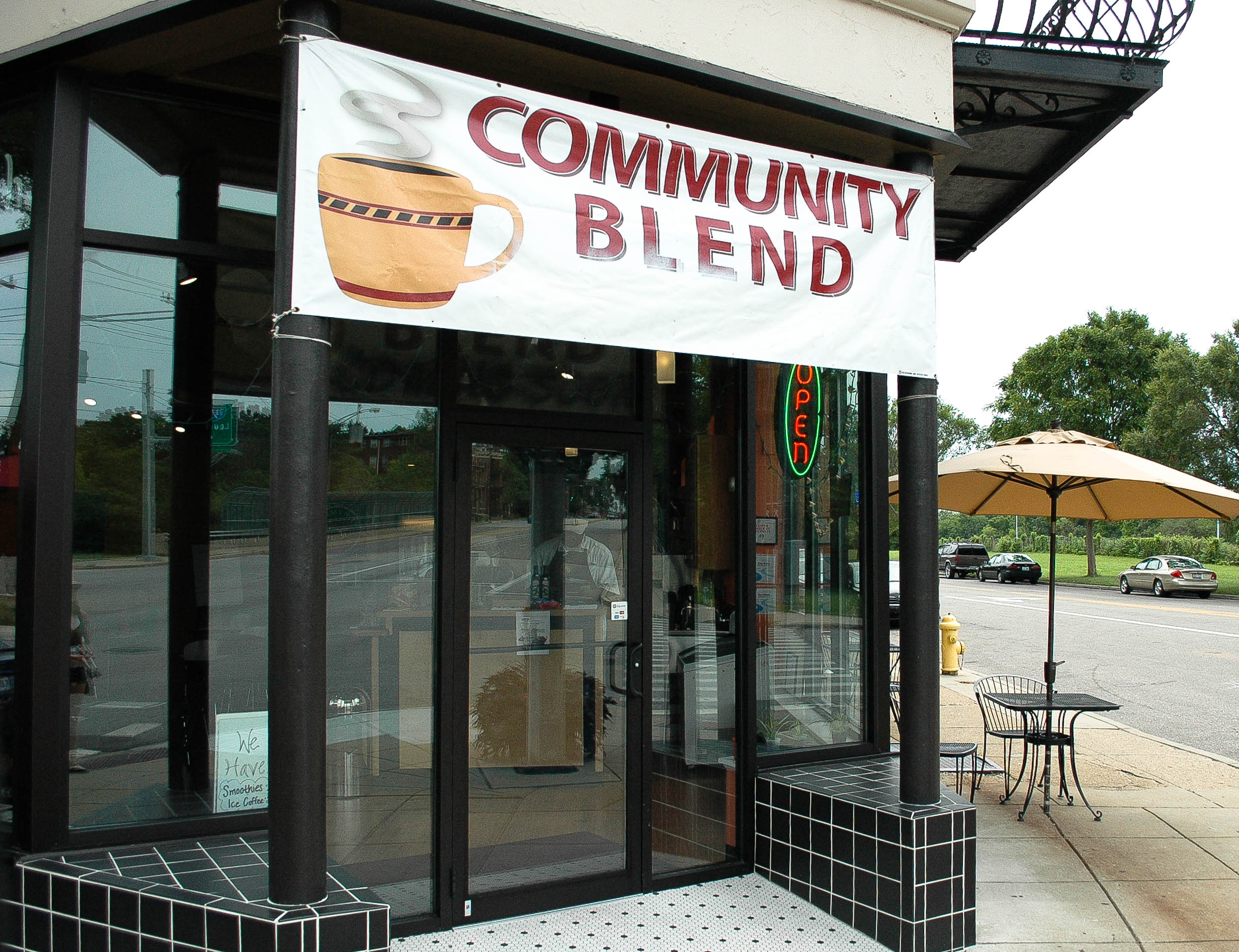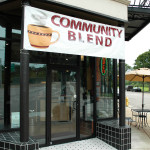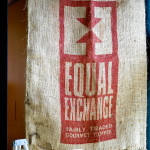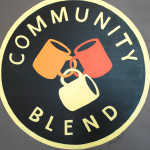Community Blend served its first cup of Equal Exchange organic fair-trade coffee, purchased by Cincinnati Mayor John Cranley (D), just over a month ago and then officially opened its doors for business Monday, May 19, 2014.
Located in Evanston at 3546 Montgomery Road they are part of a neighborhood revitalization taking place that includes the new multi-million dollar King Studios – a pioneer studio from the 1940s to 1960s that brought R&B and Country musicians into the same place and featured artists anywhere from James Brown to the Delmore Brothers.
“We chose to rehab an existing building with local history as part of the revitalization of Evanston,” co-owner Trish Breedlove told UrbanCincy. “The building, at one time, housed a pharmacy. It was vacant for quite some time but has a new lease (literally!) to be a functioning business space.”
Community Blend was an idea originally had by a half-dozen people who wanted to open the city’s first co-op coffee shop. Even though it seems like a modest project, Interfaith Business Builders, a group of Cincinnatians from different faiths and social backgrounds, has been working on this project for four years.
While coming from different backgrounds, the people driving this vision all share a passion for justice and the empowerment of people, and place a strong value on community, cooperation and solidarity. Along with this they have had many different businesses churches, civic organizations, institutions and individuals that have invested time and funding into the cooperative midtown coffee shop.
It is worth noting that the University of Cincinnati’s Community Design Center and Xavier University’s Williams College of Business and Community Building Institute were also important partners on this project.
The element that really makes this not your average coffee shop is the fact that everyone working there also has an equal share in ownership. Breedlove says that each person has one share in the business, which equates to one vote within the company, and is voluntarily run by democratic process – everyone has a voice in the direction and day-to-day operations of Community Blend.
“We collaboratively, as equals, decide on all policy issues pertaining to the café,” said Breedlove. “We believe the cooperative business is a more compassionate business as we all share the burden in difficult economic times and equally share the benefits when the business is thriving.”
Apart from the democracy-laden business model, Community Blend offers above minimum wage pay to help keep the money earned there in the local economy since about half of their workers are from the neighborhood in Evanston. They also provide education and training for all of their employees.
Community Blend offers Equal Exchange fair trade coffees, teas, chocolates, and olive oils. According to Equal Exchange, they like to source their coffee from small-scale farmers who work as a community and share the risks and rewards of growing a crop that has been in their family for generations.
“They [Community Blend] focus on the betterment of the community, not just the individual. By drinking their coffee, you are supporting, youth empowerment, funding microfinance projects, protecting fragile biospheres and keeping hope alive.”
Like the workers at Community Blend, fair trade farmers and producers are also paid above market price in what is considered more fair compensation for their work.
Alongside the coffee, Breedlove says they are focusing locally-sourced foods as much as possible. They make sandwiches to order, use fresh fruit in their smoothies and freshly squeezed lemons to make their lemonade.
Community Blend is currently open Monday through Friday from 6:30am to 3pm, and on Saturdays and Sundays from 8am to 3pm. Breedlove says that they will also be open this Saturday from 6pm to 8pm when they host an evening of poetry reading and jazz by Marian Muhammad, backed by The Last Boppers. She says that those who attend can also expect some tap dancing.



